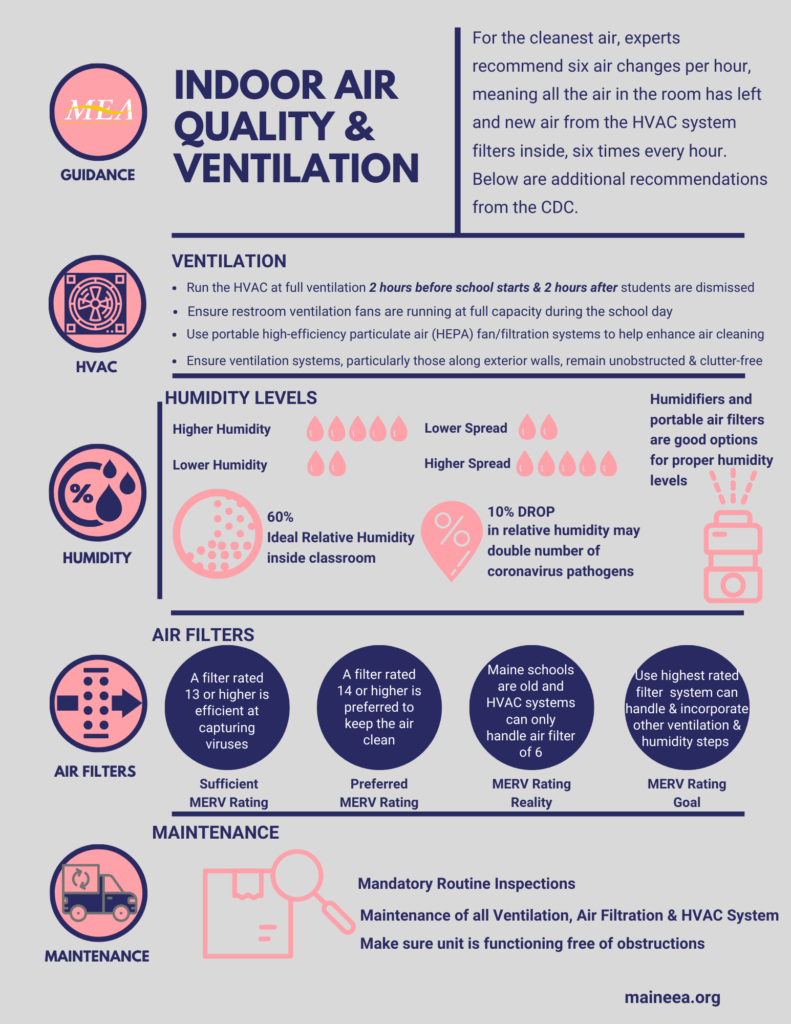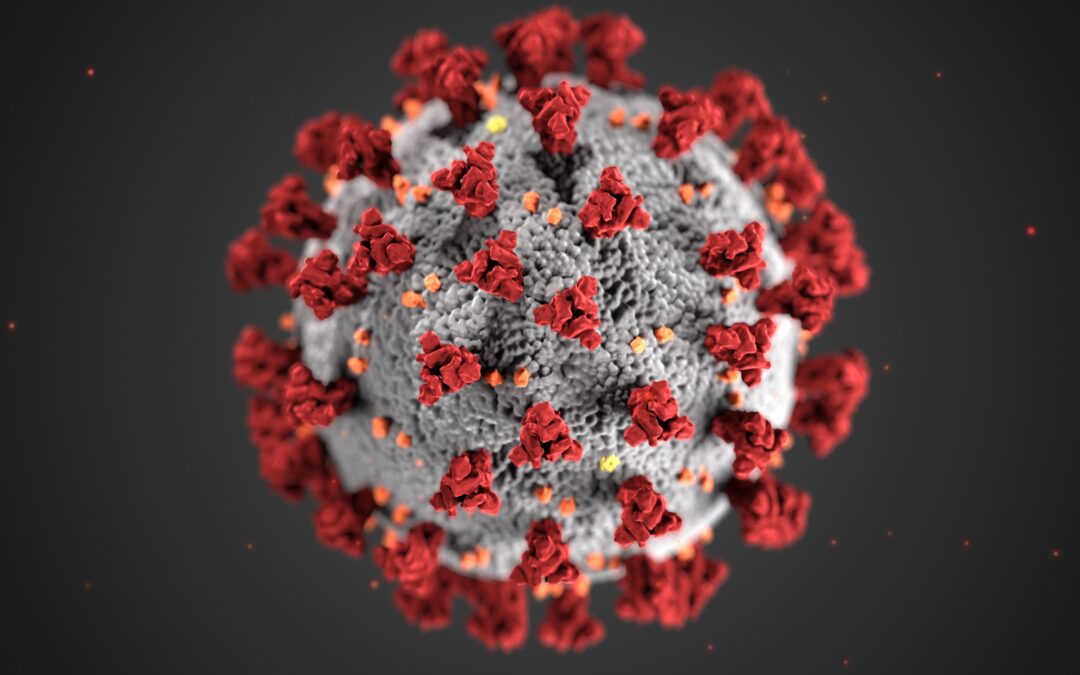
The following information has been developed by MEA’s Director of Collective Bargaining and Research to help local associations understand the issue of air quality and ventilation. For further assistance, please reach out to your MEA UniServ Director.
Ventilation
There are a few rules of thumb to go by and ASHRAE has rather extensive guidance available. The first is about 6 air changes per hour is the goal. Three or four air changes per hour is acceptable, but more is better. The federal CDC has school guidance as well. The main points from this are:
- Run the HVAC at full ventilation 2 hours before school starts & 2 hours after students are dismissed
- Ensure restroom ventilation fans are running at full capacity during the school day
- Use portable high-efficiency particulate air (HEPA) fan/filtration systems to help enhance air cleaning (especially in higher risk areas such as the nurse’s office)
- Ensure ventilation systems, particularly those running along an exterior wall in the classroom remain unobstructed and free of clutter
Humidity Levels
In addition to proper ventilation, making sure there is enough humidity in the room can be a factor in reducing the spread of airborne pathogens. There have been studies in Australia and Japan have shown that coronavirus spreads more when there are lower humidity levels. Try to ensure that relative humidity in the classroom is at least 60%. For a 10% drop in relative humidity, the number of coronavirus pathogens can double. Humidifiers may be a more feasible alternative in Maine schools this winter than opening a window or revamping the entire HVAC system.
Air Filters
According to ASHRAE, a filter with a MERV (minimum efficiency reporting value) rating of 13 or higher is efficient at capturing viruses, although a MERV rating of 14 is preferred. However, due to the age of many schools’ HVAC system, they cannot handle an air filter of 13, and may only be able to handle an air filter of 6. The goal is to use the highest MERV rated air filter the system can handle and incorporate as many other ventilation and humidity steps as possible.
Portable Air Filters
Another option to consider with an outdated HVAC system are portable air filters. The CDC recommends HEPA (high efficiency particulate air) portable filters, especially in poorly ventilated areas.
Maintenance
None of these actions matter if the HVAC system is not properly maintained. Make sure there are routine inspections and maintenance of all ventilation, air filtration, and HVAC system is functioning at the highest possible efficiency and are free of obstructions.




